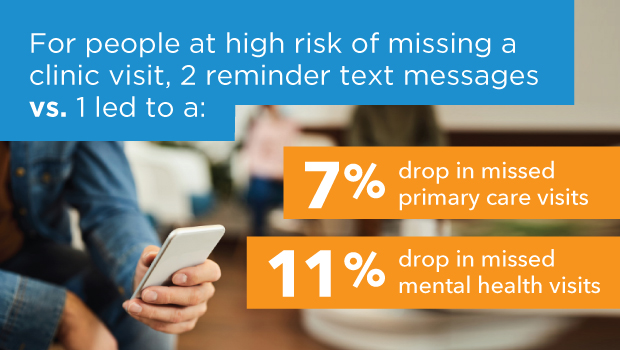Other Prediction Models
Hospitalization prediction model
Complex care management is a limited resource that can make a difference when offered to patients who need extra support in taking care of their health conditions and staying out of the hospital. The commercially available ACG risk methodology presented a possible way to identify those individuals based on past health care utilization, but it had not been used in this way in the Kaiser Permanente Washington member population. We validated the ACG 12-month hospitalization risk score, and found that it performed well in predicting hospitalizations in our population. After a successful pilot of providing lists of high-risk patients for care managers, health system leaders decided to build the ACG score into standard reporting. Kaiser Permanente Washington’s complex care managers now routinely use the risk score to prioritize outreach to members who might be good candidates for care management.
Opioid harm risk prediction models
Part of Kaiser Permanente Washington’s multi-pronged approach to reducing harm from prescribed opioids is offering specialty pain services to those at highest risk. We are evaluating the performance of Epic’s opioid use disorder/overdose risk model in the Kaiser Permanente Washington population and comparing this to an approach using morphine-equivalent daily dose (MEDD). Our findings will help more systematically identify high-risk patients for referral to pain management programs.
Suicide risk prediction model
Proactively focusing suicide prevention interventions to individuals at risk for self-harm is a promising strategy to achieve the goal of zero suicides. We have developed and validated a prediction model for identifying patients at high risk for suicide following an outpatient mental health visit at Kaiser Permanente Washington. We are piloting the use of this model with behavioral health and wellness providers and will use information on implementation effectiveness to drive next steps.
Sepsis risk prediction
Recognizing the earliest signs of sepsis is a challenge for urgent care providers. We worked with the Kaiser Permanente urgent care service line to evaluate the performance of Epic’s sepsis risk model and identify an appropriate risk threshold for flagging at-risk patients. The sepsis flag will direct urgent care providers to do a clinical assessment and initiate more timely intervention.
Outreach effectiveness evaluation
Quality leaders reached out to our team to help evaluate different outreach reminder modalities for cancer screening (e.g., mammography and FIT testing) and chronic disease monitoring (e.g., diabetic retinal exam and hemoglobin A1c). We conducted a randomized quality improvement trial comparing the effectiveness of paper versus electronic outreach reminders and assessed the impact on patient uptake of the recommended care. Findings from this work will inform outreach strategies.


